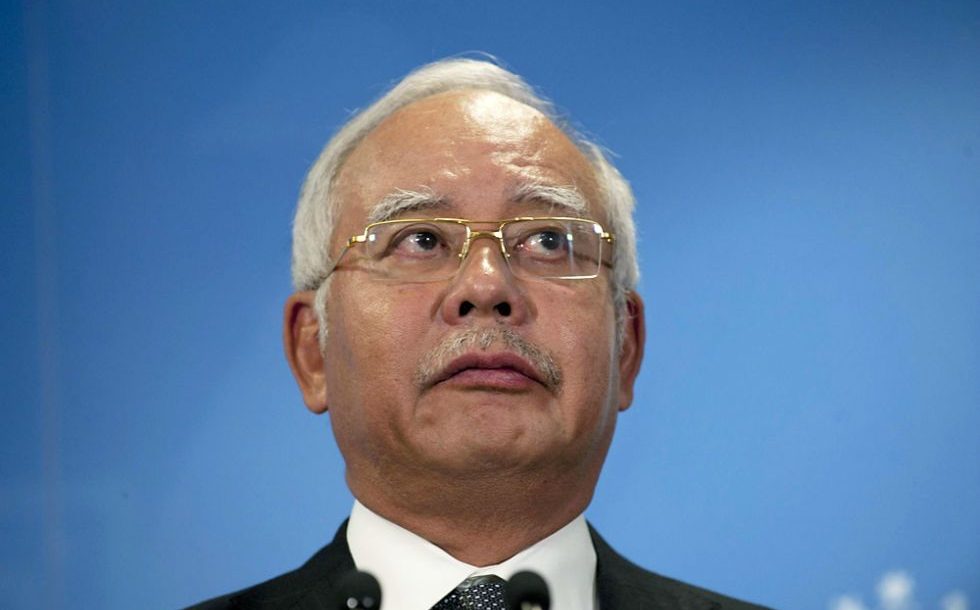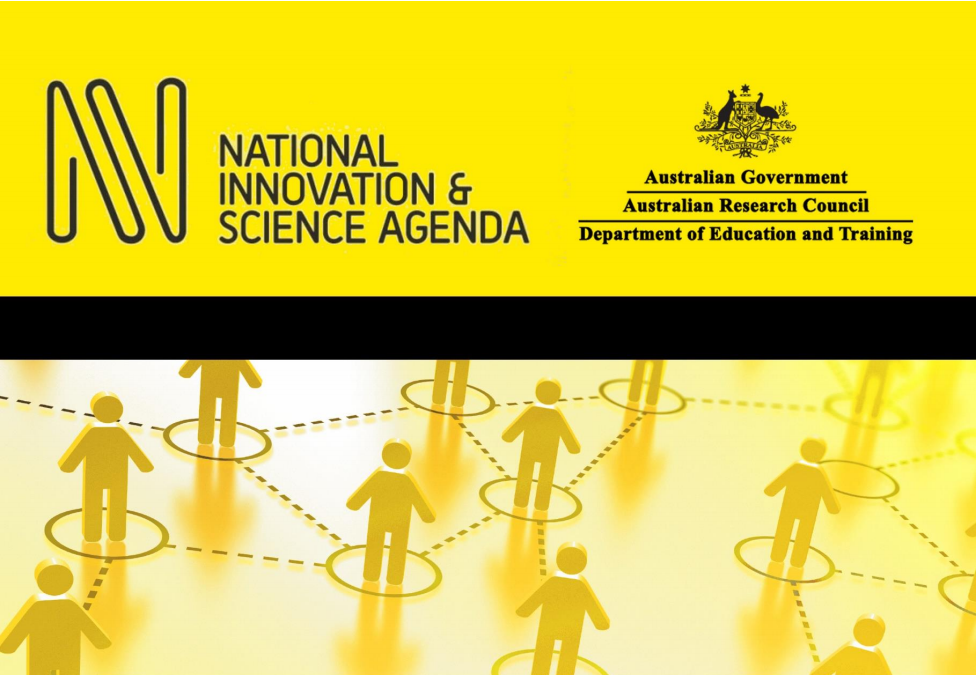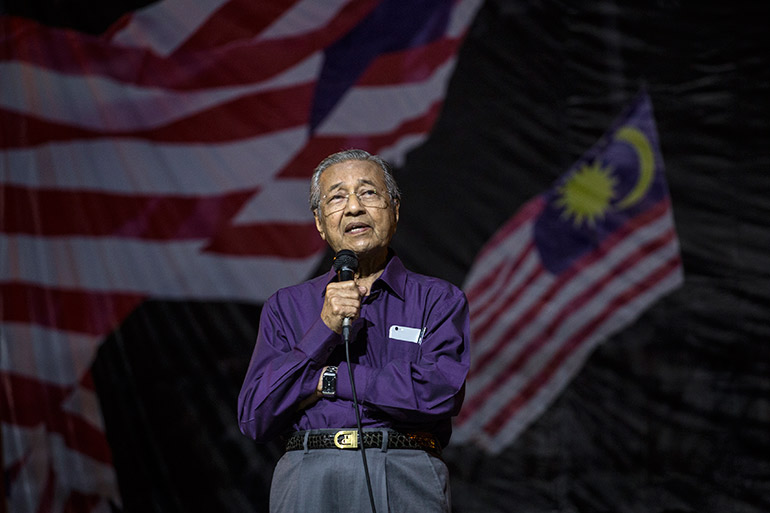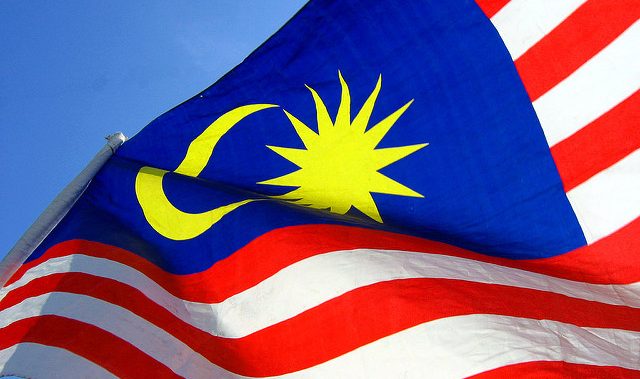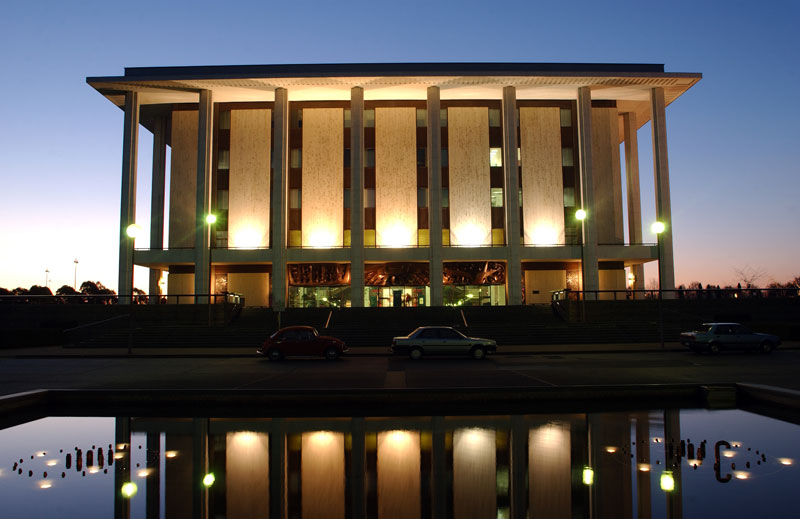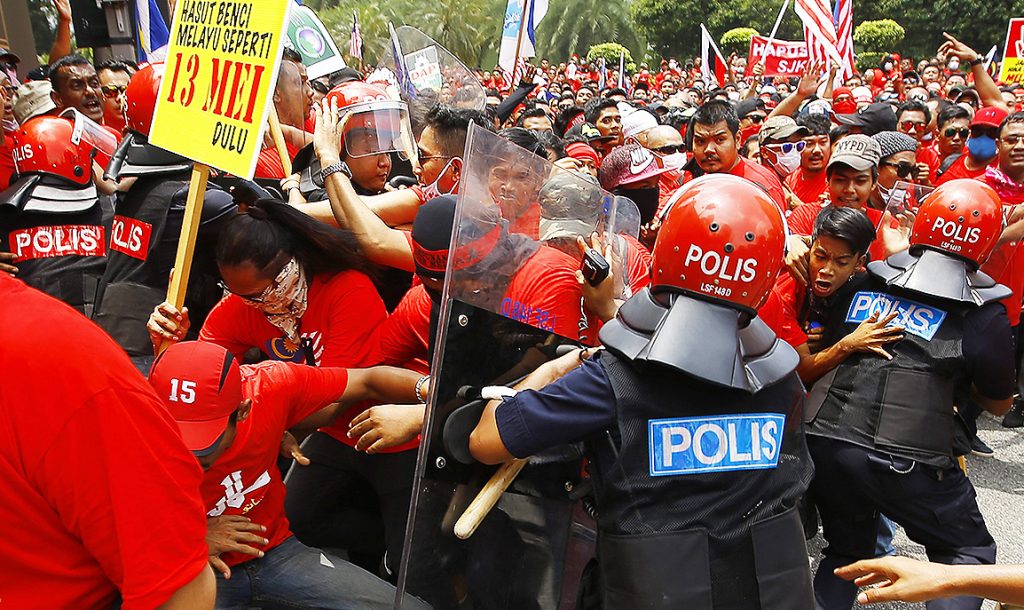Malaysian Prime Minister Najib Razak. Image selected by New Mandala.
The fourth and final part of my New Mandala series drawing on an interview with former Malaysian Prime Minister Mahathir Mohamad can be found below. An abridged version was published in the Canberra Times and syndicated across Fairfax media websites online.
Financial scandals and foreign affairs
If Malaysia’s political impasse breaks, the impact may be global.
“I myself have never wanted foreign interference in our domestic affairs,” former Prime Minister Mahathir Mohamad declared in late June in his Putrajaya office. “But domestic means of redress have been closed.”
Since I spoke to him then there’s been much debate between Malaysia analysts on whether current PM Najib Razak’s position is safe, and how much longer he can hold on before the cluster of problems now assembled around him ends his political career. Today, the ANU Coral Bell School of Asia Pacific Affairs hosts the 2016 Malaysia Update largely focused on this debate.
This is an important question, not only for Malaysia but for Australia. Analysts in Asia continue to argue that Najib is unassailable, based on their analysis of formal UMNO structures and the Malaysian bureaucracy. Mahathir largely concurs in his assessment of Najib’s domestic prospects, saying “the AG [Attorney-General] will not take up the case against him in the court.
